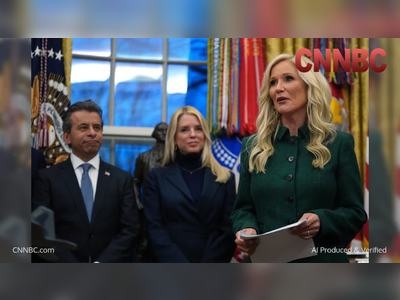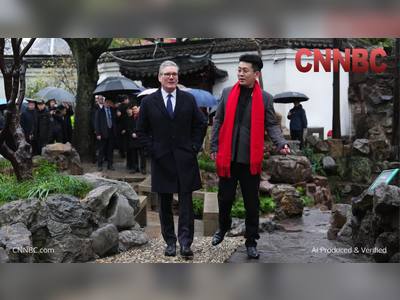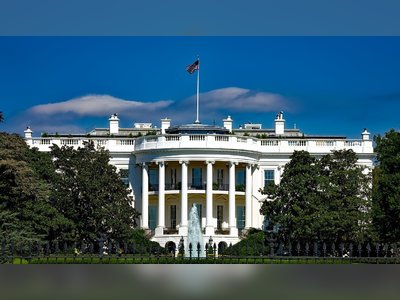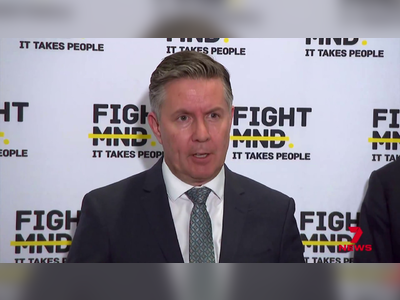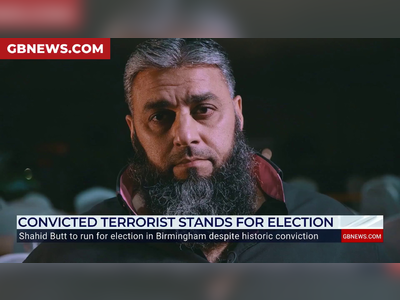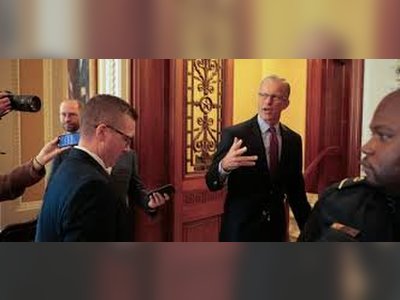Israel Confirms Extended Military Presence in Southern Syria
Israeli Defence Minister announces indefinite occupation of Syrian territory amidst ongoing regional tensions
Israel's Defence Minister, Israel Katz, has publicly affirmed the nation's commitment to maintaining a military presence in a specific area of southern Syria for an "unlimited amount of time." This declaration came during a visit to Mount Hermon, a strategic site along Israel's northern border.
Katz indicated, "The IDF (Israel Defense Forces) is prepared to stay in Syria for an unlimited amount of time.
We will hold the security area in Hermon and ensure that all the security zone in southern Syria is demilitarized and clear of weapons and threats."
Following the ousting of Bashar al-Assad’s regime in December, Israeli forces have established control over a 400 square kilometer demilitarized buffer zone in Syrian territory.
This zone lies between Syria and the Israeli-controlled Golan Heights and was originally delineated by a United Nations resolution following the 1973 Yom Kippur War.
Approximately 1,100 UN peacekeepers have monitored this area since its establishment.
Bashar al-Assad was removed from power by a coalition of rebel groups, prominently featuring Hayat Tahrir al-Sham, which has historical connections to extremist factions including al-Qaeda and the Islamic State.
The newly appointed Syrian president, Ahmed al-Sharaa, has pledged to distance his administration from extremist affiliations, promising a government that represents diverse interests and practises religious tolerance.
Israeli officials, however, remain skeptical of the new regime and its capability to stabilize the country, expressing concerns about the potential threat posed by both the Syrian government and various militant groups.
Katz emphasized the IDF's deployment on Mount Hermon as essential for the safety of communities in northern Israel.
"Every morning when [al-Sharaa] opens his eyes at the presidential palace in Damascus, he will see the IDF watching him from the peak of the Hermon, and remember that we are here and in the entire security area of southern Syria, to protect the Golan and Galilee residents against any of his threats and those of his jihadist friends," he stated while addressing reporters.
A primary objective of Israel’s actions is to hinder Iran’s ability to supply weapons to the militant group Hezbollah, based in Lebanon.
The Israeli military's recent incursions into Syrian territory have drawn significant international criticism, some condemning these actions as an exploitation of the power vacuum following Assad's fall for territorial gains.
Israel retains control over the Golan Heights, seized during the Six-Day War in 1967, an annexation that is largely unrecognized by the global community.
Reports indicate that the Israel Defence Forces have established nine military posts within Syrian territory, including locations at the summit of Mount Hermon, with some structures located in formerly fortified positions of the Syrian army.
Last month, Prime Minister Benjamin Netanyahu reiterated his demands for the complete demilitarization of southern Syria.
Israeli aerial strikes targeting military assets left by Assad's regime have occurred frequently since December, with a recent surge of attacks aimed at locations in southern Syria earlier this week.
The Israeli government has also extended protection to members of Syria’s Druze minority, many of whom reside near the border.
The Druze community is significant in both Israel and Syria, raising humanitarian concerns amid the ongoing conflict.
While some analysts have cautioned that Israel could find itself entrenched in a protracted conflict similar to its historical involvement in Lebanon, Col (ret) Dr. Jacques Neriah has expressed hope that such a situation can be avoided.
He commented on the risks of becoming excessively involved in Syria’s complex dynamics.
Simultaneously, al-Sharaa has maintained that his administration will not permit Syria to serve as a launching pad for attacks against Israel.
Recent reports from the Syrian Observatory for Human Rights, a monitoring organization, indicated that as many as 1,383 civilians have died in reported executions conducted by security forces and allied groups amid escalating violence in the Alawite heartland along the coast, an area historically loyal to the ousted president.
Katz indicated, "The IDF (Israel Defense Forces) is prepared to stay in Syria for an unlimited amount of time.
We will hold the security area in Hermon and ensure that all the security zone in southern Syria is demilitarized and clear of weapons and threats."
Following the ousting of Bashar al-Assad’s regime in December, Israeli forces have established control over a 400 square kilometer demilitarized buffer zone in Syrian territory.
This zone lies between Syria and the Israeli-controlled Golan Heights and was originally delineated by a United Nations resolution following the 1973 Yom Kippur War.
Approximately 1,100 UN peacekeepers have monitored this area since its establishment.
Bashar al-Assad was removed from power by a coalition of rebel groups, prominently featuring Hayat Tahrir al-Sham, which has historical connections to extremist factions including al-Qaeda and the Islamic State.
The newly appointed Syrian president, Ahmed al-Sharaa, has pledged to distance his administration from extremist affiliations, promising a government that represents diverse interests and practises religious tolerance.
Israeli officials, however, remain skeptical of the new regime and its capability to stabilize the country, expressing concerns about the potential threat posed by both the Syrian government and various militant groups.
Katz emphasized the IDF's deployment on Mount Hermon as essential for the safety of communities in northern Israel.
"Every morning when [al-Sharaa] opens his eyes at the presidential palace in Damascus, he will see the IDF watching him from the peak of the Hermon, and remember that we are here and in the entire security area of southern Syria, to protect the Golan and Galilee residents against any of his threats and those of his jihadist friends," he stated while addressing reporters.
A primary objective of Israel’s actions is to hinder Iran’s ability to supply weapons to the militant group Hezbollah, based in Lebanon.
The Israeli military's recent incursions into Syrian territory have drawn significant international criticism, some condemning these actions as an exploitation of the power vacuum following Assad's fall for territorial gains.
Israel retains control over the Golan Heights, seized during the Six-Day War in 1967, an annexation that is largely unrecognized by the global community.
Reports indicate that the Israel Defence Forces have established nine military posts within Syrian territory, including locations at the summit of Mount Hermon, with some structures located in formerly fortified positions of the Syrian army.
Last month, Prime Minister Benjamin Netanyahu reiterated his demands for the complete demilitarization of southern Syria.
Israeli aerial strikes targeting military assets left by Assad's regime have occurred frequently since December, with a recent surge of attacks aimed at locations in southern Syria earlier this week.
The Israeli government has also extended protection to members of Syria’s Druze minority, many of whom reside near the border.
The Druze community is significant in both Israel and Syria, raising humanitarian concerns amid the ongoing conflict.
While some analysts have cautioned that Israel could find itself entrenched in a protracted conflict similar to its historical involvement in Lebanon, Col (ret) Dr. Jacques Neriah has expressed hope that such a situation can be avoided.
He commented on the risks of becoming excessively involved in Syria’s complex dynamics.
Simultaneously, al-Sharaa has maintained that his administration will not permit Syria to serve as a launching pad for attacks against Israel.
Recent reports from the Syrian Observatory for Human Rights, a monitoring organization, indicated that as many as 1,383 civilians have died in reported executions conducted by security forces and allied groups amid escalating violence in the Alawite heartland along the coast, an area historically loyal to the ousted president.

